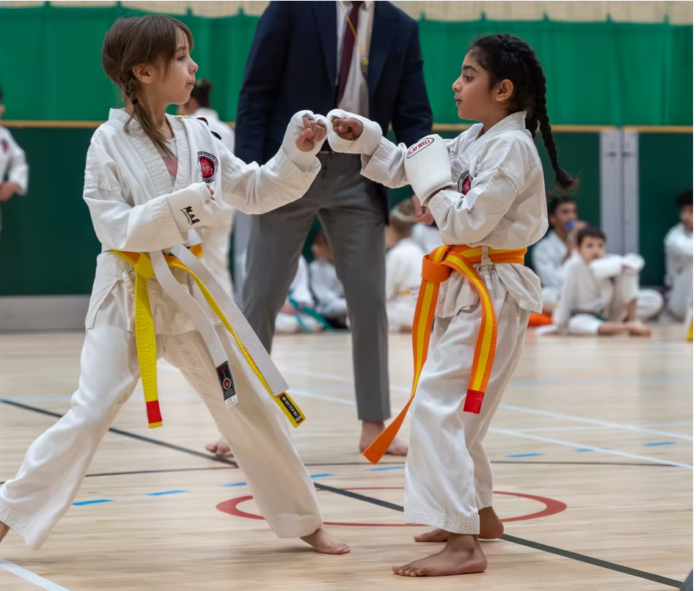The First Step Toward Protection
In today’s world, personal safety is a concern that cannot be ignored. Enrolling in karate classes for self-defence offers individuals more than just martial arts training—it provides essential skills for everyday security. Whether it’s learning how to avoid dangerous situations, developing the confidence to walk alone at night, or equipping children with the tools to resist bullying, karate training lays a strong foundation for real-world readiness.
Understanding Situational Awareness
One of the first lessons in self-defence is awareness. Students are taught to observe their environment, identify potential threats, and maintain a calm yet alert mindset. This skill is invaluable for both adults and children. For example, a student may learn to recognize when someone is following too closely or when an area feels unsafe, allowing them to take precautionary steps before a situation escalates. Awareness alone often prevents conflicts before they even begin.
Anti-Bullying Strategies for Children
For children, karate training provides practical methods to handle bullying. Instead of encouraging aggression, classes emphasize confidence, posture, and voice projection. A child who knows how to stand tall, speak firmly, and remain calm can deter bullies without resorting to violence. In scenarios where physical action becomes necessary, simple defensive moves—such as blocking or breaking free from a grab—are taught step by step, ensuring children know how to protect themselves responsibly.
Empowering Women with Self-Defence
Women often face unique safety challenges, and karate equips them with tools to navigate such situations. Training focuses on defending against common attacks, such as wrist grabs or pushes. For instance, women are shown how to use leverage and body mechanics to break free, followed by swift counter-moves to create space and escape. More importantly, classes instill the mental strength to remain calm under pressure and act decisively, which is often the key to avoiding harm.
From Technique to Confidence
Self-defence isn’t just about physical moves—it’s about the confidence to act when needed. Students gradually progress from practicing basic stances and strikes to applying them in simulated scenarios. This approach bridges the gap between theory and reality. A teenager who once felt nervous about walking home alone may, after months of practice, carry themselves with newfound assurance, reducing their chances of being targeted in the first place.
Practical Real-World Scenarios
To ensure effectiveness, training includes role-play and controlled sparring sessions. Instructors simulate situations such as being approached by an aggressive stranger or facing verbal intimidation. Students practice how to respond verbally first, de-escalating where possible, and only resorting to physical defence if absolutely necessary. This layered approach ensures that the techniques are realistic and usable outside the dojo.
Choosing the Right Training Program
When searching for the best self defence classes, it’s important to find programs that balance physical technique with mental preparedness. A structured curriculum led by experienced instructors ensures students are not only learning moves but also gaining the discipline, resilience, and awareness required for real-life application. Programs that emphasize respect and responsibility ensure that these powerful skills are used wisely and only when necessary.
Conclusion: A Dojo That Goes Beyond Technique
Self-defence training is more than learning to strike or block—it’s about cultivating awareness, confidence, and the ability to handle challenging situations with calmness and control. At Shotokan Karate JKA Academy, students in Watford and Luton receive expert instruction rooted in traditional Shotokan karate while applying techniques to modern-day safety concerns. Through carefully structured lessons, role-play scenarios, and mentorship from highly trained black belt coaches, the academy helps students of all ages develop the strength, awareness, and confidence needed to face the world with assurance and resilience.

